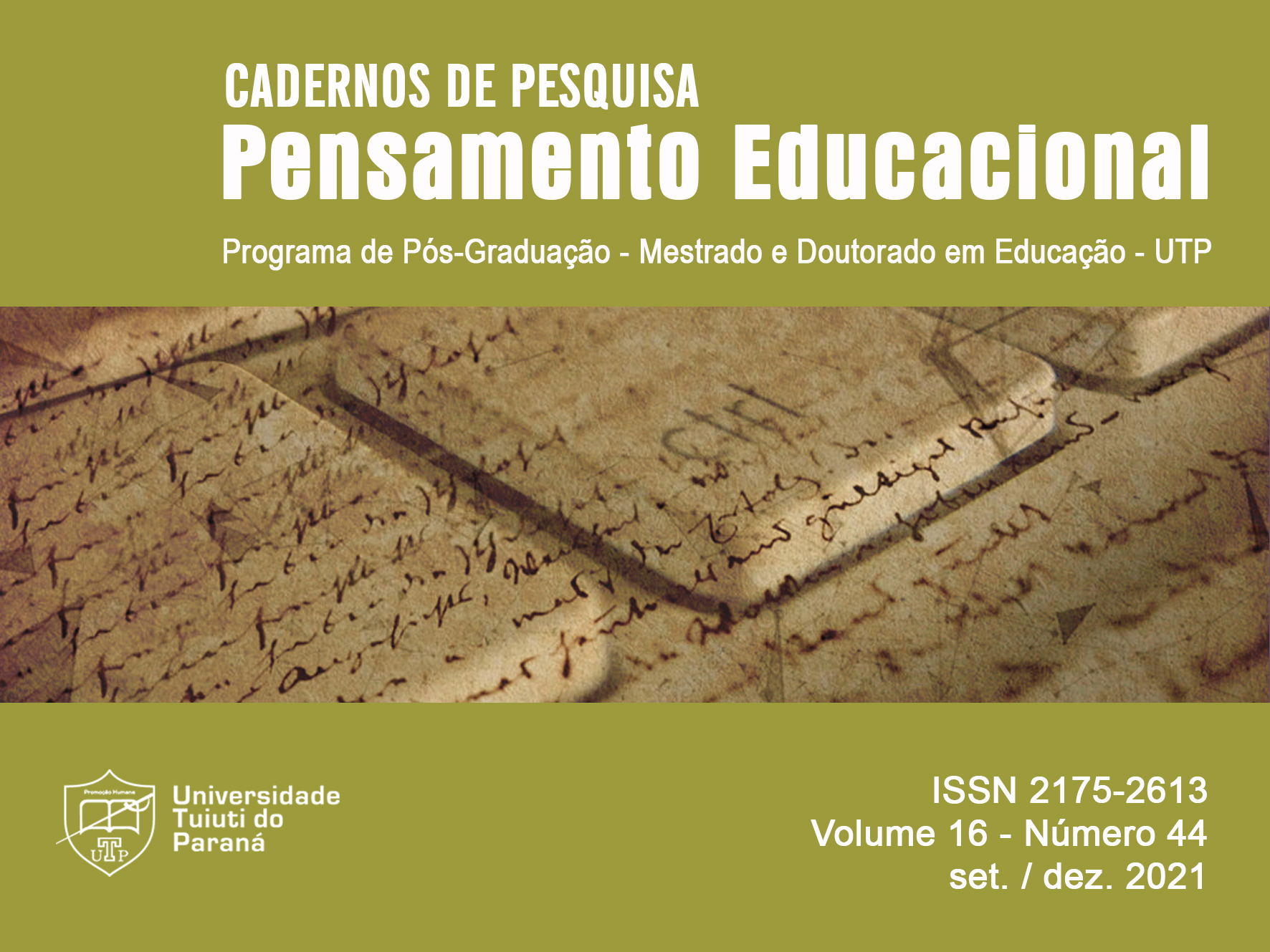Formar para a emancipação no capitalismo tardio periférico: horizonte utópico de regulação da educação ou propedêutica revolucionária concreta?
Resumo
A partir das provocações de Educação e emancipação (ADORNO, 2000), este artigo problematiza a demanda pela tematização de relações possíveis entre as noções de emancipação e Bildung. Adorno aborda as determinações radicalmente alienantes da história ocidental, tanto no mundo feudal, governado por instâncias transcendentais, quanto no mundo capitalista, regido pela hegemonia da razão instrumental. A formação emancipatória constitui-se, concomitantemente, como horizonte concreto de regulação do sistema educacional, cujo telos é a promoção da maioridade e da autonomia, e como propedêutica revolucionária, a partir do debate sistemático acerca das contradições estruturais do capitalismo e das condições objetivas e subjetivas para o processo revolucionário. Sustenta-se a hipótese de que ainda é atual e profícuo o investimento teórico na constante reelaboração do conceito de Bildung, entendido como formação crítico-negativa, cujo escopo é implementar e consolidar a justiça social, o que significa eliminar da sociedade todo tipo de exploração que oprime e promover o máximo possível de liberdade, a partir das potências de perfectibilidade inscritas nos processos de humanização. Portanto, ainda que haja na atualidade pensadores para os quais a aquisição de conhecimento está cada vez mais distante da ideia de formação do espírito, o debate estabelecido aqui nos leva a assumir uma posição contrária. Entendemos que a questão da Bildung, da formação cultural, do cultivo de si, da constituição imanente da subjetividade não é algo de que indivíduos e sociedades possam abdicar, assim como não é um problema que venha a chegar a termo, numa solução definitiva.
Palavras-chave: Educação. Emancipação. Bildung. Capitalismo periférico. Propedêutica revolucionária.
Copyright (c) 2021 Adolfo Miranda Oleare, Robson Loureiro

This work is licensed under a Creative Commons Attribution-NonCommercial 4.0 International License.
- Autores mantém os direitos autorais e concedem à revista o direito de primeira publicação, com o trabalho simultaneamente licenciado sob a Licença Creative Commons* que permite o compartilhamento do trabalho com reconhecimento da autoria e publicação inicial nesta revista.
- Autores têm autorização para assumir contratos adicionais separadamente, para distribuição não-exclusiva da versão do trabalho publicada nesta revista (ex.: publicar em repositório institucional ou como capítulo de livro), com reconhecimento de autoria e publicação inicial nesta revista.
- Autores têm permissão e são estimulados a publicar e distribuir seu trabalho online (ex.: em repositórios institucionais ou na sua página pessoal) a qualquer ponto antes ou durante o processo editorial, já que isso pode gerar alterações produtivas, bem como aumentar o impacto e a citação do trabalho publicado (Veja O Efeito do Acesso Livre).
- Esta revista proporciona acesso público a todo o seu conteúdo, uma vez que isso permite uma maior visibilidade e alcance dos artigos e resenhas publicados. Para maiores informações sobre esta abordagem, visite Public Knowledge Project.

*Esta obra está licenciado com uma Licença Creative Commons Atribuição-NãoComercial 4.0 Internacional.


